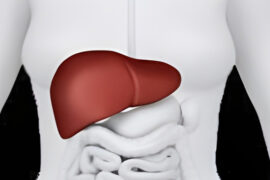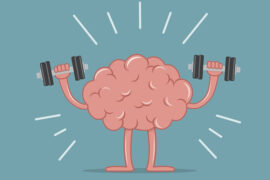A preliminary study set to be presented at the American Academy of Neurology’s 76th Annual Meeting in April 2024 suggests that individuals with sleep apnea may have a higher likelihood of experiencing memory or thinking problems. The presentation is scheduled for April 13-18, 2024, and will be conducted both in person in Denver and online. While the study reveals a positive association, it does not definitively establish whether sleep apnea directly causes cognitive decline.
Sleep apnea is characterized by the repeated interruption and restart of breathing during sleep, leading to decreased oxygen levels in the blood. Symptoms include snorting, gasping, breathing pauses, morning headaches, and difficulties focusing on tasks. The findings underscore the importance of further research to elucidate the relationship between sleep apnea and cognitive issues.
“Sleep apnea is a common disorder that is often underdiagnosed, yet treatments are available,” stated study author Dominique Low, MD, MPH, of Boston Medical Center in Massachusetts, and a member of the American Academy of Neurology. “Our study found participants who had sleep apnea symptoms had greater odds of having memory or thinking problems.”
The study involved 4,257 participants who completed a comprehensive questionnaire addressing sleep quality, memory, and cognitive issues. The sleep-related questions focused on indicators such as snorting, gasping, or breathing pauses during sleep, while queries related to memory and thinking encompassed difficulties in remembering, periods of confusion, trouble concentrating, or decision-making challenges.
Out of the participants, 1,079 reported symptoms of sleep apnea. Among those with sleep apnea symptoms, 33 percent (357 individuals) reported experiencing memory or thinking problems, in contrast to 20 percent (628 individuals) without sleep apnea symptoms.
Upon adjusting for various influencing factors including age, race, gender, and education, researchers discovered that individuals reporting sleep apnea symptoms were approximately 50 percent more likely to also report memory or thinking problems compared to those without sleep apnea symptoms. This association underscores a potential link between sleep apnea and cognitive issues, suggesting that addressing sleep-related concerns may play a role in promoting cognitive well-being.
“These findings highlight the importance of early screening for sleep apnea,” stated Low. “Effective treatments like continuous positive airway pressure (CPAP) machines are readily available. Quality sleep, along with eating a healthy diet, regular exercise, social engagement and cognitive stimulation, may ultimately reduce a person’s risk of thinking and memory problems, improving their quality of life.”
The study has certain limitations that warrant consideration. Firstly, the data was derived from a single survey, potentially limiting the generalizability of the findings to a broader population. Moreover, the reliance on self-reported symptoms rather than assessments by medical professionals introduces a subjective element, and the accuracy of reported information may vary among participants. To enhance the robustness of the conclusions and establish a more concrete causal relationship, additional longitudinal studies are essential.
Future research efforts should involve following individuals with sleep apnea, monitoring memory and thinking symptoms over an extended period, and incorporating more comprehensive diagnostic evaluations conducted by healthcare professionals to ensure the reliability and validity of the results. These considerations underscore the need for further investigation to strengthen the understanding of the complex interplay between sleep apnea and cognitive function.
Disclaimer:
The information contained in this article is for educational and informational purposes only and is not intended as a health advice. We would ask you to consult a qualified professional or medical expert to gain additional knowledge before you choose to consume any product or perform any exercise.








